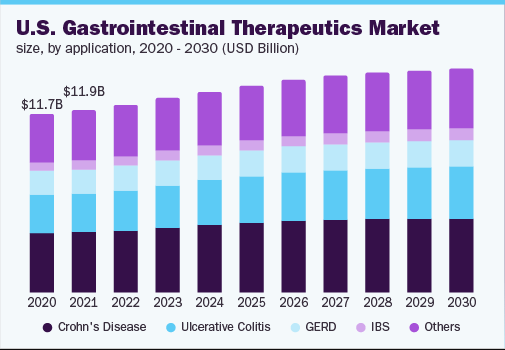About Conference
Gastroenterology Organizers Welcomes you to attend “20th Euro-Global Gastroenterology Conference” which is going to be held in Zurich, Switzerland on July 07-08, 2025.
Gastro Congress 2025 serves as an exceptional platform, featuring meticulously designed medical software tailored to the needs of its _target audience. This includes symposiums, workshops, keynote lectures, plenary talks, panel discussions, and poster sessions covering the latest research advancements and technological developments in the field, along with therapeutic aspects. Gastro Congress extends its invitation to a diverse spectrum of professionals, including Gastroenterologists, Hepatologists, Endoscopists, Physicians, Microbiologists, Virologists, Pathologists, Oncologists, Surgeons, Toxicologists, Researchers, Students, Business Delegates, and Young Researchers from around the world.
Renowned speakers from across the globe will deliver keynote talks, sharing insights into the most recent advancements, methodologies, and cutting-edge technologies in gastrointestinal therapeutics. These presentations are the hallmark of Gastroenterology at Gastro Congress 2025, promising to enlighten and inspire attendees with the latest trends and innovations in the field.
Young Research’s Awards at Gastro Congress 2025:
Gastro Congress aims to recognize and honour the outstanding achievements of talented young researchers, scientists, investigators, post-graduate students, post-doctoral fellows, trainees, and junior faculty members within the field. The Young Scientist Awards endeavour to provide a significant professional development opportunity for early-career academics by facilitating interactions with experts, enabling the exchange of experiences, and fostering discussions on all facets of Gastroenterology.
Young Research Forum (YRF) Benefits:
-
Younger Scientist Award recognition certificate and souvenir to the winners
-
It offers exceptional Platform in your research via oral presentations.
-
Find out about career development with all the trendy technology through networking.
-
Provide an opportunity for research interplay and hooked up senior investigators across the globe inside the subject of Gastroenterology.
-
It is far a fantastic privilege for young researchers to study the studies regions for increasing their studies knowledge.
Sessions &Tracks
Track 1: Gastroenterology
Gastroenterology is the branch of medicine that focuses on the digestive system and its disorders. This medical specialty deals with the diagnosis and treatment of conditions affecting the gastrointestinal (GI) tract, which includes the esophagus, stomach, small intestine, colon, rectum, pancreas, gallbladder, bile ducts, and liver.
Gastroenterologists are physicians who specialize in this field and are trained to diagnose and manage a wide range of GI conditions, from common issues like acid reflux and irritable bowel syndrome (IBS) to more complex diseases such as Crohn's disease, ulcerative colitis, liver cirrhosis,
Relevant Associations & Societies: American Gastroenterological Association, Canadian Society of Gastroenterology Nurses and Associates, European Society of Gastroenterology and Endoscopy Nurses and Associates, British Society of Pediatric Gastroenterology, Gastroenterological Society of Australia, Philippine Society of Gastroenterology
Track 2: Hepatology
Hepatology is the medical specialty focused on the study, diagnosis, and treatment of liver diseases and disorders. Hepatologists, specialists in this field, address a wide range of conditions affecting the liver, including hepatitis (both viral and non-viral), liver cirrhosis, fatty liver disease, liver cancer, and autoimmune liver diseases. They employ various diagnostic tools such as blood tests, imaging studies, and liver biopsies to assess liver function and identify underlying issues. Treatment may involve lifestyle changes, medications, or in advanced cases, liver transplantation. Hepatologists play a crucial role in managing liver health and preventing complications associated with liver diseases.
Relevant Associations & Societies: Canadian Association of Gastroenterology, American Neuro-gastroenterology and Motility Society, European Society of Gastrointestinal Endoscopy, Hepatology and Nutrition, Gastroenterological Association of Thailand (GAT)
Track 3: Hepatitis
Hepatitis refers to inflammation of the liver, often caused by viral infections (hepatitis A, B, C, D, and E), excessive alcohol consumption, or autoimmune diseases. Symptoms can vary but may include fatigue, jaundice, abdominal pain, and nausea. Hepatitis can be acute or chronic, with chronic cases potentially leading to liver cirrhosis or cancer. Diagnosis typically involves blood tests to detect viral markers or liver enzyme levels. Treatment varies depending on the type and severity of hepatitis, ranging from supportive care to antiviral medications or, in advanced cases, liver transplantation. Prevention through vaccination and lifestyle modifications is crucial for managing hepatitis to COVID-19 response efforts. Despite these challenges, the pandemic accelerated innovation in gastroenterology, driving the adoption of digital health technologies and novel approaches to patient care delivery.
Relevant Associations & Societies: Gastroenterological Society of Taiwan, European Society for Diseases of the Esophagus, Philippine Society of Gastroenterology, Society for Gastroenterology, European Society for Diseases of the Esophagus
Track 4: Gastrointestinal Pathology
Gastrointestinal pathology encompasses diseases affecting the digestive system, including the esophagus, stomach, small and large intestines, liver, gallbladder, and pancreas. Common conditions include Gastroesophageal reflux disease (GERD), gastritis, peptic ulcers, inflammatory bowel disease (IBD), Cohn’s disease, ulcerative colitis, celiac disease, liver cirrhosis, gallstones, pancreatitis, and gastrointestinal cancers. Diagnosis often involves endoscopic procedures, imaging studies, and histopathological examination of tissue samples. Treatment strategies vary depending on the specific condition and may include medication, lifestyle changes, surgery, or a combination of these approaches. Early detection and management are crucial for improving outcomes and quality of life for patients with gastrointestinal disorders.
Relevant Associations & Societies: European Society of Neuro-gastroenterology and Motility, European Society for Diseases of the Esophagus
Track 5: Gastrointestinal Cancer
Gastrointestinal (GI) cancers encompass malignancies affecting the digestive tract, including the esophagus, stomach, liver, pancreas, colon, and rectum. These cancers present a significant global health burden, with diverse etiologist and varying prognoses. Treatment modalities include surgery, chemotherapy, radiation therapy, _targeted therapy, and immunotherapy, often used in combination for optimal efficacy. Multidisciplinary approaches involving oncologists, surgeons, gastroenterologists, and other specialists are crucial for comprehensive care and improved patient outcomes.
Relevant Associations & Societies: Gastroenterological Society of Taiwan, European Society for Diseases of the Esophagus, Philippine Society of Gastroenterology, Society for Gastroenterology, European Society for Diseases of the Esophagus
Track 6: Covid-19 effects on gastroenterology practices
The COVID-19 pandemic significantly impacted gastroenterology practices worldwide. Many non-urgent procedures were postponed to conserve medical resources and reduce virus transmission, leading to financial strain on practices. Telemedicine emerged as a vital tool for remote consultations and follow-ups, although its efficacy for certain gastrointestinal conditions remains debated. Practices implemented rigorous infection control measures, such as enhanced sanitization and personal protective equipment use, to ensure patient and staff safety. Despite challenges, the pandemic accelerated digitalization and prompted innovative approaches to patient care, potentially reshaping the future of gastroenterology practices.
Relevant Associations & Societies: North Carolina Society of Gastroenterology, Canadian Society of Gastroenterology Nurses and Associates, Alabama Gastroenterological Society, Gastroenterological Society of Australia
Track 7: Small Bowel and Colonic Disease
Small Bowel and Colonic Diseases encompass a wide range of conditions affecting the gastrointestinal tract. From inflammatory bowel diseases (IBD) like Cohn’s disease and ulcerative colitis to colorectal cancer and diverticular disease, these ailments can significantly impact patients' quality of life. Diagnosis often involves a combination of medical history, physical examination, imaging studies like CT scans and MRIs, and endoscopic procedures such as colonoscopies and capsule endoscopies. Treatment often involves dietary modifications, fiber supplements, and medications to manage symptoms. In severe cases, complications like diverticulitis (inflammation of the pouches) may require antibiotics or, in rare instances, surgery.
Relevant Associations & Societies: Gastroenterological Society of Taiwan, European Society for Diseases of the Esophagus, Philippine Society of Gastroenterology, Society for Gastroenterology, European Society for Diseases of the Esophagus
Track 8: Pancreatic and biliary disease
Pancreatic and biliary diseases encompass a range of conditions affecting the pancreas and bile ducts. Pancreatitis, inflammation of the pancreas, can be acute or chronic, often caused by gallstones or excessive alcohol consumption. Symptoms include severe abdominal pain, nausea, and vomiting. Biliary diseases involve disorders of the bile ducts, such as gallstones, bile duct strictures, and cholangitis. These conditions can lead to jaundice, abdominal pain, and digestive issues. Treatment options vary depending on the specific disease but may include medications, lifestyle changes, and in severe cases, surgical interventions like cholecystectomy or ERCP (endoscopic retrograde cholangiopancreatography). Early diagnosis and management are crucial for better outcomes.
Relevant Associations & Societies: American Gastroenterological Association, Canadian Association of Gastroenterology, North Carolina Society of Gastroenterology, Canadian Society of Gastroenterology Nurses and Associates, American Neuro-gastroenterology and Motility Society.
Track 9: Esophageal and Gastric Disease
Esophageal and Gastric Diseases encompass a range of conditions affecting the esophagus and stomach. Esophageal disorders like GERD (Gastroesophageal reflux disease) involve stomach acid backing up into the esophagus, causing heartburn and potential damage. Barrett's esophagus is a precancerous condition resulting from long-term GERD. Gastric ailments include gastritis (inflammation of the stomach lining), peptic ulcers (sores in the lining of the stomach or duodenum), and gastric cancer. Symptoms vary but may include abdominal pain, heartburn, difficulty swallowing, and nausea. Management often involves lifestyle changes, medication, and in severe cases, surgery. Early detection and treatment are crucial for preventing complications.
Relevant Associations & Societies: American Gastroenterological Association, Canadian Association of Gastroenterology, North Carolina Society of Gastroenterology, Ontario Association of Gastroenterology, Alabama Gastroenterological Society, American Neuro-gastroenterology and Motility Society.
Track 10: Abdominal & Primary Care
Abdominal and primary care refers to medical practices focused on the diagnosis, treatment, and management of abdominal conditions and overall health maintenance. It encompasses a wide range of issues including digestive disorders, abdominal pain, gastrointestinal diseases, and preventive care. Primary care providers play a vital role in this field, serving as the first point of contact for patients seeking medical assistance. They conduct initial assessments, offer treatments or referrals to specialists, and coordinate on going care. This branch of medicine emphasizes comprehensive care, patient education, and preventive measures to promote overall wellness.
Relevant Associations & Societies: Gastroenterological Society of Australia, Gastroenterological Association of Thailand (GAT)
Track 11: Microbiota
Microbiota refers to the diverse community of microorganisms that inhabitvariousenvironments, including the human body, soil, water, and air. In the context of human health, the gut microbiota, comprising bacteria, viruses, fungi, and other microorganisms, plays a crucial role in digestion, immune function, and even mental health. Disruptions in the balance of gut microbiota have been linked to various conditions such as obesity, inflammatory bowel diseases, and even neurological disorders like Alzheimer's disease. Research into the microbiota is on going, with scientists exploring its potential for personalized medicine and therapeutic interventions to maintain health and treat disease.
Relevant Associations & Societies: American Gastroenterological Association, Canadian Association of Gastroenterology, North Carolina Society of Gastroenterology.
Track 12: Celiac Diseases
Celiac disease is an autoimmune disorder triggered by the ingestion of gluten, a protein found in wheat, barley, and rye. When individuals with celiac disease consume gluten, their immune system responds by attacking the lining of the small intestine, leading to inflammation and damage to the villi—tiny, finger-like projections responsible for nutrient absorption. This damage can result in various gastrointestinal symptoms such as diarrhoea, abdominal pain, bloating, and malabsorption of nutrients, leading to deficiencies and other complications.
Relevant Associations & Societies: Gastroenterological Society of Australia, Indian Society of Gastroenterology, Philippine Society of Gastroenterology.
Track 13: Paediatric Gastroenterology
Paediatric gastroenterology specializes in diagnosing and treating gastrointestinal disorders in children, from infancy through adolescence. Common conditions addressed include Gastroesophageal reflux disease (GERD), inflammatory bowel disease (IBD), celiac disease, food allergies, constipation, diarrhoea, liver disease, and pancreatitis. Because children's digestive systems are still developing, they may experience unique challenges and manifestations of these disorders. Paediatric gastroenterologists undergo specialized training to understand these intricacies, offering tailored care for each child. Treatment often involves collaboration with paediatricians, nutritionists, and other specialists to ensure comprehensive care. Advances in diagnostic techniques and treatment modalities continue to improve outcomes for paediatric patients with gastrointestinal conditions.
Relevant Associations & Societies: American Gastroenterological Association, Canadian Association of Gastroenterology, North Carolina Society of Gastroenterology.
Track 14: Gastrointestinal Endoscopy and Surgery
Gastrointestinal (GI) endoscopy is a medical procedure used to diagnose and treat disorders of the digestive tract. Endoscopy can detect abnormalities such as ulcers, inflammation, polyps, and tumours, as well as perform therapeutic interventions like biopsies, removal of polyps, dilation of strictures, and control of bleeding. Preoperative evaluation, careful surgical planning, and postoperative management are integral parts of ensuring successful outcomes in GI surgery.
Relevant Associations & Societies: Gastroenterological Society of Australia, Gastroenterological Association of Thailand (GAT), Philippine Society of Gastroenterology.
Track 15: Gastrointestinal Pharmacotherapy
Gastrointestinal pharmacotherapy refers to the use of medications to treat disorders of the digestive system. These medications _target various aspects of gastrointestinal health, including acid production, motility, inflammation, and infection. Common medications include proton pump inhibitors (PPIs) and H2 receptor antagonists to reduce stomach acid production and treat conditions like Gastroesophageal reflux disease (GERD) and peptic ulcers. Medication management should always be supervised by a healthcare professional to ensure safety and efficacy.
Relevant Associations & Societies: Canadian Society of Gastroenterology Nurses and Associates, Ontario Association of Gastroenterology, Alabama Gastroenterological Society.
Market Analysis
The global gastroenterology market was valued USD 46.7 billion in 2023, driven by the rising incidence of gastrointestinal disorders, aging population, advancements in technology has led to market growth across the globe. The market size is anticipated to grow at a CAGR of 5.1% during the forecast period of 2024-2032 to achieve a value of USD 72.9 billion by 2032.
Gastroenterology: Introduction
Gastroenterology is a specialized field of medicine focused on the diagnosis, treatment, and management of disorders related to the digestive system, which includes the esophagus, stomach, small intestine, large intestine, liver, gallbladder, pancreas, and rectum. Gastroenterologists are the medical professionals trained to treat conditions like gastroesophageal reflux disease (GERD), irritable bowel syndrome (IBS), inflammatory bowel diseases like Crohn's and ulcerative colitis, liver diseases like hepatitis, and gastrointestinal cancers among other conditions.
Importance in Global Healthcare: With the increase in lifestyle-related disorders, aging populations, and growing awareness about gastrointestinal health, gastroenterology has become an essential component of global healthcare. Digestive disorders are among the leading causes of doctor visits, hospitalizations, and disability worldwide.

Key Trends in the Global Gastroenterology Market
Increasing Prevalence of GI Disorders: There's a rising global incidence of gastroenterological disorders such as inflammatory bowel disease (IBD), gastroesophageal reflux disease (GERD), and irritable bowel syndrome (IBS), which is driving demand for both diagnostic and therapeutic interventions.
Advances in Endoscopy: Developments in endoscopic techniques, like capsule endoscopy and endoscopic ultrasound, offer less invasive diagnostic and therapeutic options, improving patient comfort and clinical outcomes.
Personalized Medicine: Tailoring treatment based on individual patient genetics or specific disease phenotypes, especially in conditions like IBD, is becoming more common. This approach can improve treatment efficacy and reduce side effects.
Growth of Biologics: The introduction and acceptance of biologics, such as anti-TNF agents, to treat conditions like IBD has revolutionized patient outcomes. The development of newer agents _targeting different pathways continues to be a trend.
Microbiome Research: The gut microbiome, the diverse community of microorganisms residing in the digestive tract, is now recognized as a pivotal factor in gastroenterological health and disease. Therapies _targeting the microbiome, including fecal microbiota transplants and probiotics, are gaining traction.
Global Gastroenterology Market Segmentation
The market can be categorised into product type, indications, end user and region.
Market Breakup by Product Type
Drugs
-
Proton Pump Inhibitor
-
H2 Antihistamine
-
Others
Medical Devices
Market Breakup by Indications
-
Inflammatory Bowel Disease (IBD)
-
Gastroesophageal Reflux Disease (GERD)
-
Colorectal Cancer
-
Liver Diseases
-
Pancreatic Disorders
-
Others
Market Breakup by End User
-
Hospitals
-
Ambulatory Surgical Centers
-
Specialty Clinics
-
Research Institutes
-
Others
Market Breakup by Region
-
North America
-
Europe
-
Asia Pacific
-
Latin America
-
Middle East and Africa
Global Gastroenterology Market Overview
The global gastroenterology market represents a significant segment within the healthcare sector, focusing on the diagnosis, treatment, and management of digestive system disorders. These encompass conditions affecting the oesophagus, stomach, small intestine, large intestine (colon), liver, gallbladder, and pancreas. The market usually comprises a mix of large multinational corporations and smaller specialized companies. Mergers, acquisitions, and collaborations are common strategies for growth and expansion.
Regional overview:
North America: Widely recognized as a leading market, fueled by a sophisticated healthcare ecosystem, heightened public awareness, and easy access to cutting-edge treatments.
Europe: Comparable to North America in many respects but distinguishes itself through the variety of healthcare models across its different nations.
Asia Pacific: A burgeoning market characterized by its rapidly expanding healthcare facilities and growing public consciousness about gastrointestinal disorders.
Rest of the World: Comprising areas such as Latin America, the Middle East, and Africa, these markets are in the nascent stages of developing their healthcare infrastructure.
Key Players in the Global Gastroenterology Market
The key features of the market report include patent analysis, grants analysis, clinical trials analysis, funding and investment analysis, partnerships, and collaborations analysis by the leading key players.
The major companies in global gastroenterology market are as follows:
-
Abbott Laboratories
-
Johnson & Johnson
-
AbbVie Inc.
-
Salix Pharmaceuticals
-
GlaxoSmithKline Plc.
-
ALLERGAN
-
Takeda Pharmaceutical Company Limited
-
AstraZeneca
-
Astellas Pharma US, Inc.
-
Pfizer Inc
Past Conference Report
19th Euro-Global Gastroenterology Conference was held in the city of Paris, France on September 19-20, 2024, brought together gastroenterologists, researchers, and healthcare professionals from across the globe for a stimulating exchange of ideas and insights. Against the backdrop of historic landmarks and cultural richness, the conference served as a platform for exploring the latest advancements and emerging trends in the field of gastroenterology.
The main theme of the conference is “Expanding New Horizons in Advances of Gastroenterology & Hepatology”.
Another key theme that emerged from Gastro Congress 2024 was the importance of interdisciplinary collaboration. With sessions spanning across various subspecialties including hepatology, gastroesophageal disorders, and inflammatory bowel disease, participants had the opportunity to engage in cross-disciplinary discussions and explore synergies between different fields. The exchange of ideas and expertise not only enriched the scientific discourse but also laid the groundwork for future collaborations aimed at addressing complex clinical challenges.
The conference was initiated with a warm welcome note by Honourable guests and the Keynote forum. The conference proceedings were carried out through various Scientific-sessions and plenary lectures.
We are also very happy to invite you to our next conference i.e. 20th Euro-Global Gastroenterology Conference which is going to be held during July 07-08, 2025 in Zurich, Switzerland.
Let us meet once more at Gastro Congress 2025.








